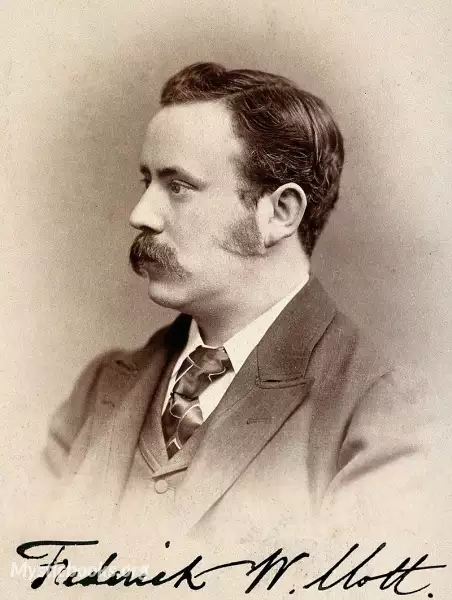
Timeline
Title
Country/Nationality
Frederick Walker Mott
Sir Frederick Walker Mott was one of the pioneers of biochemistry in Britain. He is noted for his work in neuropathology and endocrine glands in relation to mental disorder, and consequently as a psychiatrist and social scientist. He was Croonian Lecturer to the Royal College of Physicians for the year 1900.
The Maudsley Hospital in London was Mott's idea, inspired by Emil Kraepelin's clinic in Germany, and Mott conducted the negotiations for its funding and construction. He ran the pathology laboratory which was transferred there, and treated shell shock patients during World War I. His reputation had been greatly enhanced by helping establish that 'general paralysis of the insane' was actually due to syphilis, but he has been criticised for overly organic and degenerative assumptions in regard to mental illness including shell shock. After the war, in a lecture to the Eugenics Education Society, he claimed that shell shock was rare in volunteers as opposed to regular conscripted men, and that it was not a new disorder but merely a variation occurring in those already predisposed.
Mott, like Maudsley, appears to have held that mental illness was inherited due to degenerate family lines that worsened until dying out, though his selecting of cases and statistics were questioned by other eugenicists. Mott advanced an overarching theory that mental disease was due to pathology of the sexual reproductive system, as evidenced for example by atrophied testes, causing breakdown of cerebral neurons in certain parts of the brain.
Books by Frederick Walker Mott

The Brain and the Voice in Speech and Song
"The contents of this little book formed the subject of three lectures delivered at the Royal Institution "On the Mechanism of the Human Voice" and three London University lectures at King's College on "The Brain in relation to Speech and Song." I h...